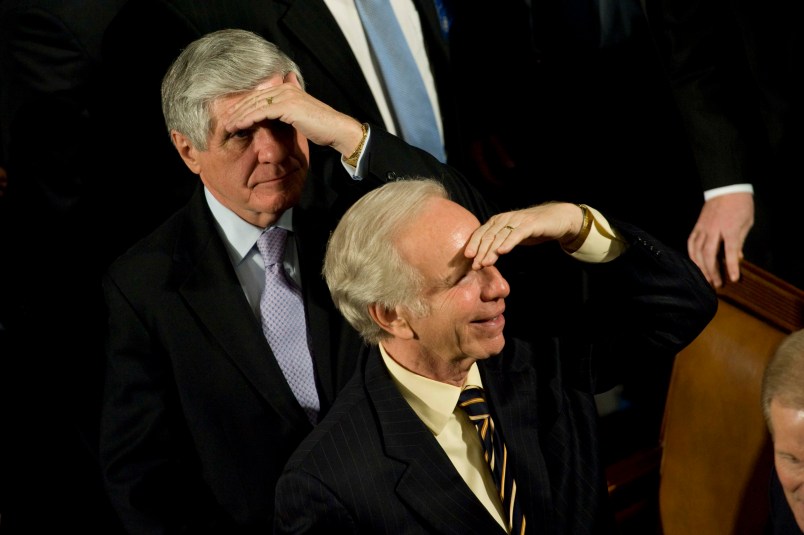Senate Majority Leader Harry Reid got his 60 on Saturday, and when the Senate returns from Thanksgiving recess next week, they’ll be debating and amending a major piece of health care legislation. However, the vote, and its aftermath exposed or clarified the cleavages within the Democratic party that will have to be bridged if Reid hopes to keep his caucus in line on the next cloture motion–to end a Republican filibuster and hold a simple majority vote on reform.
If you thought the opt-out compromise was a silver bullet for the public option, you may have gotten a bit ahead of yourself. It held up for a while, and could still survive, but that’s going to require some interesting gymnastics from Democratic leaders. Leading up to Saturday’s vote, and in its immediate aftermath, conservative Democrats entrenched their opposition to the public option in the Senate bill. Sen. Joe Lieberman (I-CT) repeated his threat to support a health care filibuster if it includes a public option of any kind, and, despite her earlier support for the provision, Sen. Blanche Lincoln (D-AR) took to the Senate floor Saturday and announced, “I’m promising my colleagues that I’m prepared to vote against moving to the next stage of consideration as long as a government-run public option is included.” That gives her a bit more wiggle room than Lieberman’s left himself, and Sens. Mary Landrieu (D-LA) and Ben Nelson (D-NE) have a bit more still, but that makes 60 for the opt out a tough climb. On the other side of the caucus, though, Sens. Bernie Sanders (I-VT), Sherrod Brown (D-OH), and Roland Burris (D-IL) have inched closer to threatening to block a health care bill from the left if the public option is weakened further. If reform is to pass, one side of the caucus will have to hold its collective nose and vote for something they don’t like.
Leading Democrats are working with some of the centrists to find a solution that works for everybody, but those negotiations are nascent and sensitive and swapping out the opt out plan in the bill for something new could require the assent of the entire caucus.
Progressive Democrats in the House, meanwhile, insist that none of these Senate compromises will fly in the lower chamber after conference committee.
And that’s just the biggest flashpoint. The others–taxes, abortion, unauthorized immigrants, the start-date of the key reforms–inspire less public hand wringing, but, in a reactive environment, could become silent killers.
The countervailing dynamic is that, after months of wrangling, and with the final votes in site, Democrats have simply invested too much effort, and have put too much on the line, for the party to fail because of intra-party disagreements over narrow provisions. As Brown put it on CNN’s State of the Union this Sunday, “[I]n the end, I think that all four of our colleagues surveyed this — look at this bill in the end and say, I don’t think they want to be on the wrong side of history. I don’t think they want to go back and say, you know, on a procedural vote, I killed the most important bill in my political career. I don’t think they want to be there on that. So I think in the end, we get them.”
They certainly got them Saturday. For weeks, conservative Democrats held out on the motion to proceed. But in the days before the vote, the pressure not to let health care come to naught simply became too intense. It’s easy to imagine things playing out similarly in the days ahead.










